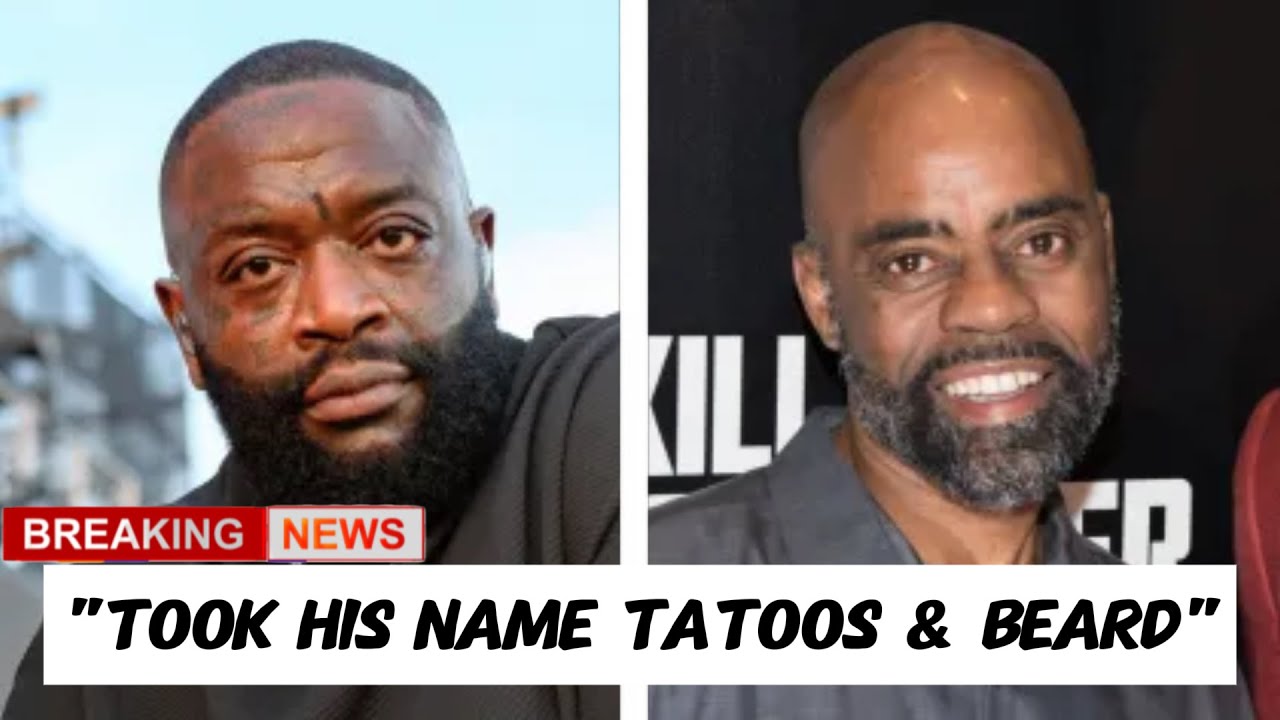The Identity Heist: How Rick Ross Built a Career on a Stolen Legacy
In a shocking revelation that blurs the lines between reality and fiction, the world of hip-hop is grappling with the truth behind Rick Ross’s meteoric rise: he built his empire on an identity that wasn’t his own. The story of William Roberts, a former correctional officer who adopted the persona of a notorious drug kingpin, raises profound questions about authenticity in the music industry and the nature of artistic expression.

For over a decade, Rick Ross has dominated the rap scene, amassing a fortune and a reputation as one of hip-hop’s most iconic figures. Yet, beneath the surface of his lavish lifestyle lies a foundational lie: Roberts never sold drugs; he merely appropriated the life story of Freeway Ricky Ross, a real-life drug lord whose empire was built on the very cocaine that Roberts only rapped about. This audacious act of identity theft has ignited a legal battle that challenges the very essence of artistic ownership.
The genesis of this saga can be traced back to Roberts’s early days as a college football player and correctional officer in Florida. His life was a stark contrast to the gritty, dangerous world he would later portray. When he adopted the name Rick Ross, he didn’t just choose a moniker; he seized an entire narrative. Freeway Ricky Ross, who operated during the 1980s, was not a mere figure of folklore; he was a man whose name was synonymous with a dark chapter in American history, etched into court documents and FBI files.
Roberts’s choice was strategic, leveraging the weight of a notorious name to catapult himself into the spotlight. He immersed himself in the lore of Freeway Ricky, studying every detail of the man’s life to construct a persona that would resonate with fans. His debut single, “Hustlin’,” served as both a declaration and a deception, drawing listeners into a world he had never inhabited. The conviction with which he delivered his lines blurred the lines between reality and performance, leading many to accept his fabricated identity without question.
However, the truth began to unravel when the original Rick Ross was released from prison in 2009. The shock of discovering that someone else was profiting from his life story was a bitter pill to swallow. This confrontation sparked a multi-million dollar lawsuit, with Freeway Ricky claiming trademark infringement and the misappropriation of his identity. In a courtroom showdown that pitted the architect of a stolen persona against the archetype he had usurped, the stakes were nothing short of monumental.
Roberts’s defense hinged on the argument that Freeway Ricky had forfeited his rights by failing to trademark his name. They framed Roberts’s persona as a parody, a fictionalization that fell under the protections of artistic expression. While the court ultimately ruled in favor of Roberts, the public’s perception of him was forever altered. The revelation of his past as a correctional officer became an inescapable footnote in the narrative of Rick Ross.
The hip-hop community’s reaction was mixed, with some artists condemning Roberts for his deception while others admired his business acumen. The controversy surrounding his identity only seemed to fuel his career, proving that in the entertainment industry, perception often outweighs authenticity. The paradox of a correctional officer masquerading as a kingpin became a talking point, adding layers to his already complex persona.
As the saga unfolded, Freeway Ricky Ross embarked on his own journey of redemption, transforming his narrative from one of crime to advocacy. He became a motivational speaker and author, reclaiming the truth of his life story and using it to inspire others. In doing so, he reminded the world that while identities can be stolen, the power to redefine oneself remains unassailable.

The tale of Rick Ross serves as a mirror reflecting our own struggles with identity in the digital age. In a world where we curate and filter our lives online, the question remains: how far are we willing to go to project an idealized version of ourselves? While Roberts’s story is an extreme example, it highlights a universal truth about the human impulse to create and inhabit characters.
Ultimately, the saga of Rick Ross is a cautionary tale about the complexities of identity, authenticity, and the lengths one might go to achieve success in an industry where image is everything. As fans continue to grapple with the implications of this identity heist, one thing is clear: the line between art and life is often more blurred than we care to admit.







